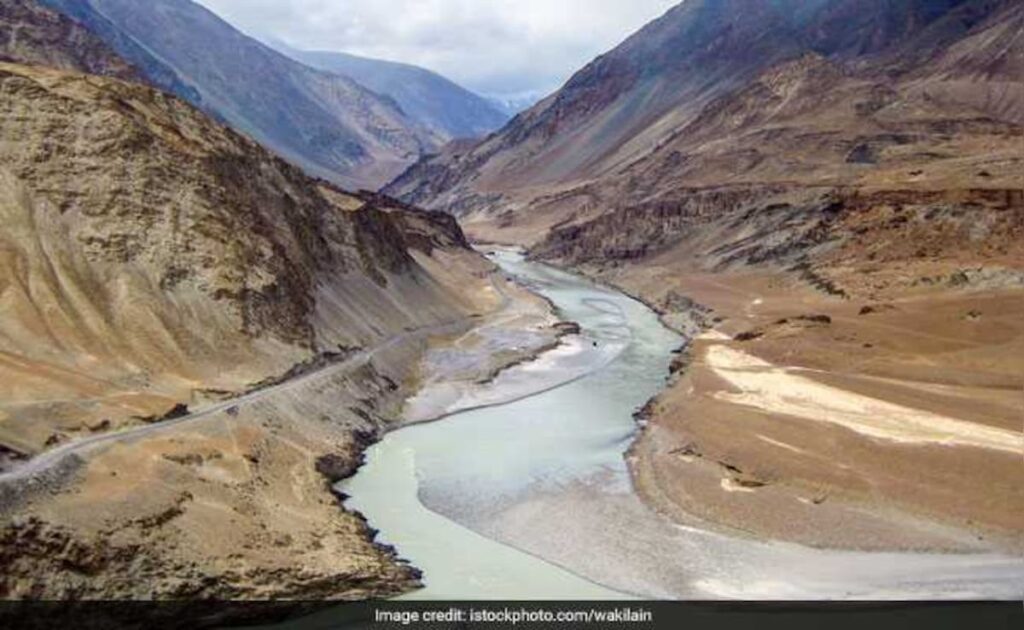
Introduction: A Landmark Move in Water Diplomacy
In a move that marks a significant shift in South Asian geopolitics, the Government of India announced the Indus Waters Treaty suspension with Pakistan following a brutal terror attack in Jammu and Kashmir’s Pahalgam region. The decision has triggered strong reactions both domestically and internationally, as it touches upon a decades-old water-sharing agreement that had largely withstood the test of time and conflict.
The Indus Waters Treaty suspension is being viewed not only as a retaliatory diplomatic step but also as a reassertion of India’s strategic autonomy. As tensions escalate between the two nuclear-armed neighbors, this blog explores the background, implications, and possible outcomes of this bold policy decision.
Background of the Indus Waters Treaty
The Indus Waters Treaty (IWT) was signed in 1960 after years of negotiations brokered by the World Bank. It was designed to peacefully divide the waters of the Indus River system between India and Pakistan after the Partition, which left both nations dependent on shared river resources.
Key Provisions of the Treaty:
- India was allocated exclusive control over the eastern rivers: Ravi, Beas, and Sutlej.
- Pakistan received the rights to the western rivers: Indus, Jhelum, and Chenab.
- India retained limited rights to use western rivers for domestic, agricultural, and hydroelectric purposes, under strict conditions.
- Any significant project on the western rivers required prior notification to Pakistan.
For over six decades, the treaty endured despite wars and diplomatic standoffs, serving as a rare symbol of cooperation.
What Triggered the Indus Waters Treaty Suspension?
The immediate catalyst for the Indus Waters Treaty suspension was the deadly terror attack in Pahalgam, Jammu and Kashmir, which led to multiple fatalities. India has long maintained that Pakistan provides sanctuary and support to terror outfits operating across the border. The latest attack proved to be the tipping point.
India’s Strategic Rationale:
- The treaty, in India’s view, loses its relevance when peaceful bilateral relations are absent.
- National security concerns now outweigh previous commitments under international agreements.
- By suspending the treaty, India signals a firm policy shift in how it handles terrorism and cross-border aggression.
This suspension reflects not just anger but a calculated strategy to leverage water as a geopolitical tool.
Implications for India: Gaining Water Autonomy
The suspension of the treaty immediately alters India’s position regarding water management across the Indus basin.
Key Benefits for India:
- Enhanced Water Storage and Flood Control
India can now undertake reservoir flushing, dam construction, and flood mitigation projects on western rivers without Pakistan’s prior approval. - Termination of Monsoon Data Sharing
India often shared crucial flood data with Pakistan during the monsoon. The suspension may halt this, reducing transparency during flood-prone months. - Hydroelectric Expansion
Projects that were earlier slowed by treaty constraints can now be pursued more aggressively, strengthening India’s energy independence. - Reasserting Sovereignty
With full control over river usage, India reinforces its territorial and administrative rights in Jammu and Kashmir.
This strategic water autonomy allows India to plan long-term infrastructure projects aligned with both national security and regional development.
Consequences for Pakistan: A Looming Water Crisis
For Pakistan, the Indus Waters Treaty suspension could not have come at a worse time. The country already faces chronic water shortages, exacerbated by poor infrastructure, rapid population growth, and climate change.
Potential Fallout for Pakistan:
- Reduced Water Availability
The western rivers supply over 80% of Pakistan’s irrigation needs. Disruption could devastate crops in Punjab and Sindh provinces. - Agricultural Shock
Pakistan’s economy heavily relies on agriculture, which consumes nearly 90% of available freshwater. Any water reduction could spark food insecurity and economic downturn. - Drinking Water Shortage
Urban and rural water supplies would be affected, especially during summer and monsoon variability. - Geopolitical Pressure
Pakistan may turn to international forums, but the suspension underlines its diplomatic isolation and reduced leverage.
This adds another layer of instability to a country already grappling with political and economic challenges.
Legal and International Perspectives
India has not officially withdrawn from the treaty but has suspended its operations, indicating that it might revisit or renegotiate the agreement.
Key Legal Aspects:
- International law allows suspension of treaties under specific conditions such as material breach or threats to national security.
- The Vienna Convention on the Law of Treaties supports re-evaluation when circumstances change drastically.
- India’s move may set a precedent for how bilateral treaties are managed in the face of non-traditional threats like terrorism.
This development may influence other transboundary water treaties around the world.
What Lies Ahead: Future of India-Pakistan Water Relations
The Indus Waters Treaty suspension does not necessarily mean the end of all cooperation, but it raises questions about the future trajectory of Indo-Pak diplomacy.
Possible Scenarios:
- Renegotiation of the Treaty:
India may propose new terms that reflect current geopolitical realities, stricter on cross-border terror links. - International Mediation Attempts:
Organizations like the World Bank or United Nations may attempt to mediate, though India has historically resisted third-party involvement. - Escalation or Resolution:
Pakistan could respond diplomatically or militarily. Conversely, the suspension might force constructive dialogue under international pressure. - Long-Term Strategic Realignment:
Water diplomacy may become a core pillar of India’s foreign policy, especially in managing hostile neighbors.
Conclusion: A Turning Point in Regional Water Politics
The Indus Waters Treaty suspension marks a bold and unprecedented step by India to assert control over a critical natural resource in response to escalating national security threats. While it poses serious challenges for Pakistan, it also opens doors for India to advance its hydrological sovereignty, boost infrastructure development, and reinforce its stand on cross-border terrorism.
As the world watches, this event could reshape how water diplomacy is conducted in conflict-prone regions. Balancing national interest with humanitarian considerations will be the next great challenge.